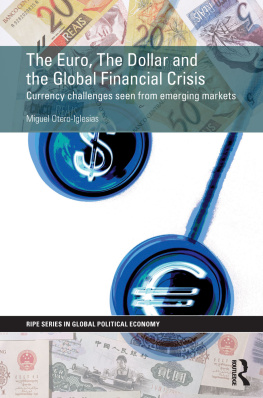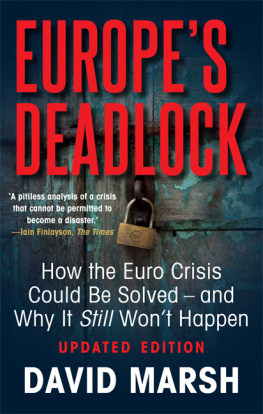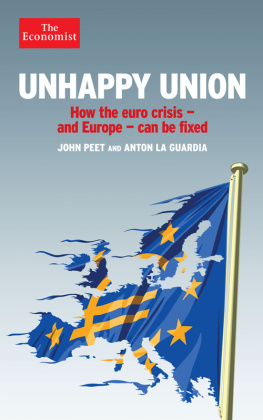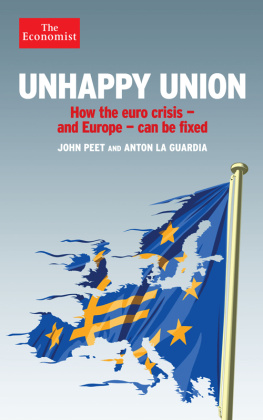Aufheben - The euro crisis: taking the PIGS to market
Here you can read online Aufheben - The euro crisis: taking the PIGS to market full text of the book (entire story) in english for free. Download pdf and epub, get meaning, cover and reviews about this ebook. genre: Detective and thriller. Description of the work, (preface) as well as reviews are available. Best literature library LitArk.com created for fans of good reading and offers a wide selection of genres:
Romance novel
Science fiction
Adventure
Detective
Science
History
Home and family
Prose
Art
Politics
Computer
Non-fiction
Religion
Business
Children
Humor
Choose a favorite category and find really read worthwhile books. Enjoy immersion in the world of imagination, feel the emotions of the characters or learn something new for yourself, make an fascinating discovery.

- Book:The euro crisis: taking the PIGS to market
- Author:
- Genre:
- Rating:4 / 5
- Favourites:Add to favourites
- Your mark:
- 80
- 1
- 2
- 3
- 4
- 5
The euro crisis: taking the PIGS to market: summary, description and annotation
We offer to read an annotation, description, summary or preface (depends on what the author of the book "The euro crisis: taking the PIGS to market" wrote himself). If you haven't found the necessary information about the book — write in the comments, we will try to find it.
Aufheben: author's other books
Who wrote The euro crisis: taking the PIGS to market? Find out the surname, the name of the author of the book and a list of all author's works by series.
The euro crisis: taking the PIGS to market — read online for free the complete book (whole text) full work
Below is the text of the book, divided by pages. System saving the place of the last page read, allows you to conveniently read the book "The euro crisis: taking the PIGS to market" online for free, without having to search again every time where you left off. Put a bookmark, and you can go to the page where you finished reading at any time.
Font size:
Interval:
Bookmark:
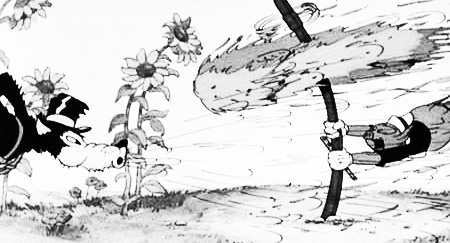
On the 30 th November 2011 Olli Rehn vice president of the European Commission declared that there were only ten days to save the euro! This declaration, from such an eminent source, gave a dramatic rhetorical twist to the often fraught and frantic negotiations leading up to the summit of European leaders and financial ministers that had been tasked with finding a solution to the euro crisis. After the repeated failure of Europes politicians and policy makers to get a grip, it was now official they were now all drinking in the last chance saloon.
With the world looking on with apprehension, by 11 th December the assembled politicians and policy makers had come to a nail biting last minute agreement on how to contain the crisis. Central to this agreement had been the Greek governments humiliating acceptance of a closely monitored draconian austerity package, in return for help from both the IMF and the rest of the eurozone in financing its rapidly growing debts. Yet no sooner than the deal was signed it seemed that the entire agreement might unravel. The Greek prime minister George Papandreou, in one last gesture of defiance, proposed to put the austerity measures to a referendum of the Greek people. Already, earlier in the autumn, Silvio Berlusconi the rather boorish prime minister of Italy had been sacrificed to appease the agitated bond markets. It did not take much time for the European ruling class to bundle Papandreou off stage. With scant regard for democratic niceties, in little more than a week Papandreou had been replaced as Greek prime minister by the safe pair of hands of Dr Lucas Papademos, former vice president of the European Central Bank (ECB), at the head of a government of national unity firmly under the direction of Berlin and Brussels.
By the end of 2011 it seemed that the euro had at last been saved at least for the time being. The gods of the bond markets had been suitably appeased, and the crisis had begun to abate. But six months later, like the sequel to a bad Hollywood horror film, the euro crisis has erupted once more. Once again there are frantic negotiations and summits to save the euro, and once again we are having the increasingly clichd dire warnings of the consequences of not finding such a solution.
So what is the significance of the euro crisis? Is it merely a matter of making a drama out of a crisis? Or is it more than this? Certainly the euro crisis has had a very real impact on the majority of the population of Europe. It has provided the opportunity for the European ruling class to launch a continent-wide class offensive against the entrenched positions of the European working class. Nowhere is this more evident than in Greece. The imposition of draconian austerity measures has amounted to the effective carpet bombing of the Greek economy. Hundreds of thousands of businesses have gone bankrupt, and public services have been slashed. As a result unemployment has more than doubled in the last two years with youth unemployment standing at more than 50%. This together with cuts to the minimum wage and pensions, has meant that the standard of living of the average Greek has fallen by more than a third since the beginning of the crisis. As the rich take their money abroad, the numbers below the official poverty line have soared with an estimated 250,000 people in Athens alone now dependent on food parcels and soup kitchens.
So how are we to understand the euro crisis? Has it been simply due to the profligacy of certain governments such as those of Portugal, Ireland, Greece and Spain the so-called PIGS of the southern and western periphery of Europe? Or is it the inevitable result of attempting to impose a single currency on the heterogeneous economies of Europe? Is it the result of European politicians and policy makers being trapped by outdated economic dogma that has forgotten Keynes and the lessons of the 1930s? Or is the euro crisis a symptom of the terminal decline of capitalism in which the bourgeoisie are no longer able to prevent the self-destruction of their own economic system?
As we shall see, all these positions have an element of truth. However, we shall argue that the euro crisis cannot be fully understood unless it is placed in the context of the shifting tectonic plates of global capitalism, that is seeing the emergence of China and the global south and the beginnings of the decline of an American-centred global accumulation of capital.

Looking on in dismay
By the time the drama of the euro crisis had reached its crescendo in the autumn of 2011, leading policy makers outside Europe from Timothy Geithner, the US treasury secretary, to even Christine Lagarde, the former French finance minister and the newly appointed head of the IMF - could barely disguise their exasperation at the failure of both European politicians and the institutions of the European Union to act decisively enough to contain the crisis. The financial difficulties of Greece - whose economy amounts to little more than 2% of that of the entire eurozone - had been allowed to spiral out of control, to the point where it was now threatening to engulf the entire eurozone. At each stage in the crisis the European politicians could be accused of being behind the curve - unable to convince the financial markets that they were prepared to take the obvious action on a sufficiently bold scale necessary to contain the crisis. And each failure to act with sufficient boldness had only served to further exacerbate the situation.
After having stared into the abyss only three years before, the ineptitude of the European politicians and institutions in the handling of the euro crisis, it seemed, had brought the world once again close to the brink of another global financial meltdown like that which had threatened to follow the collapse of Lehman Brothers. Only this time the financially weakened governments of the world might not be in a position to avert such a financial meltdown, and thereby save world capitalism from the economic collapse that would inevitably follow, as they had done before. Even if they eventually did manage to get their act together and took the action necessary to contain the crisis, the failure on the part of the European ruling class to at least contain the euro crisis at an earlier stage could already be seen to have contributed to the serious delay in the long hoped for global economic recovery.
So how had the rather marginal financial problems facing Greece been allowed to spiral out of control? What could have been done to contain the crisis? And, if the policy actions necessary to contain the crisis were so evident, why did the European policy makers fail to take such actions? To answer such questions we must first look a little closer at how the euro crisis has unfolded.
Font size:
Interval:
Bookmark:
Similar books «The euro crisis: taking the PIGS to market»
Look at similar books to The euro crisis: taking the PIGS to market. We have selected literature similar in name and meaning in the hope of providing readers with more options to find new, interesting, not yet read works.
Discussion, reviews of the book The euro crisis: taking the PIGS to market and just readers' own opinions. Leave your comments, write what you think about the work, its meaning or the main characters. Specify what exactly you liked and what you didn't like, and why you think so.




